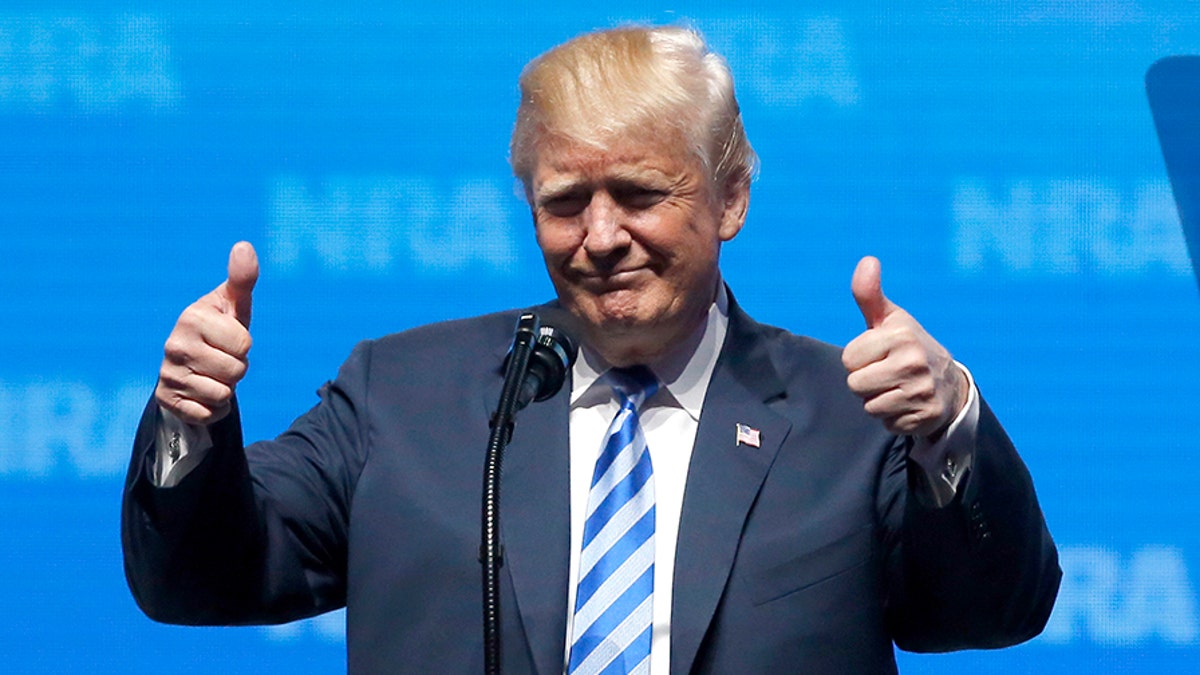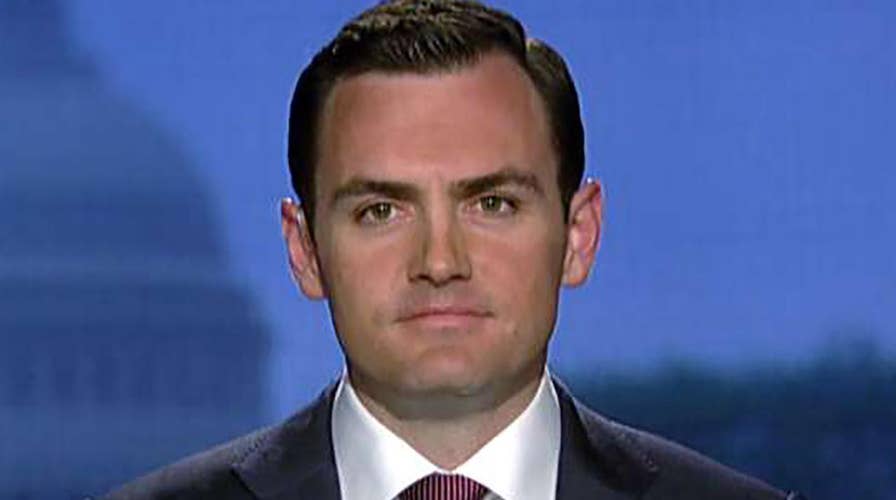Rep. Gallagher discusses bipartisan push for term limits
Bipartisan group of lawmakers met with President Trump to discuss congressional term limits; Rep. Mike Gallagher provides insight on 'America's News HQ.'
A bipartisan group of House freshmen is reviving the idea of congressional term limits and now has the support of President Trump, who campaigned on the issue in 2016.
The move is being led by Wisconsin GOP Rep. Mike Gallagher, a Marine Corps veteran who on Sunday said the group’s recent White House meeting with the president was a success, while acknowledging long odds for such a change.
“I feel the meeting went extremely well,” Gallagher told Fox News' "America's News HQ" on Sunday. “The president seemed highly supportive. … And he said he was genuinely impressed with the enthusiasm of the group.”
Gallagher and four other House freshmen were invited to the White House to talk about their idea, each having supported various term-limit proposals in the past, a Gallagher spokeswoman told Fox News on Monday.
Gallagher says he drew inspiration for the proposal -- which essentially keeps elected officials from becoming career politicians -- from his time in the military, “where people worked together to get a difficult job done.”

President Trump is backing a bipartisan term-limit plan from a group of House freshmen. (AP2018)
“Here it’s careers ahead of country,” he said. “This would force everyone in Congress to treat their time here like a deployment, not a career.”
Trump made ridding Washington of career politicians a major part of his winning campaign, rallying crowds with the chant of “drain the swamp.”
While Trump wanted a six-year limit for House members and 12-year limit for senators, Gallagher and his group are considering 12 years for members of both chambers.
And they’ve proposed that the change begin with their freshman class, to avoid resistance from sitting members who want to remain in Congress.
Trump purportedly told the group members to return to Capitol Hill to agree on a final plan, which Gallagher expects to have ready by this week.
“I recently had a terrific meeting with a bipartisan group of freshman lawmakers who feel very strongly in favor of Congressional term limits,” the president tweeted after the meeting. “I gave them my full support and endorsement for their efforts. #DrainTheSwamp.”
Beyond resistance from members of Congress, the group would also face uphill legal and legislative challenges. The Supreme Court has ruled against congressional term limits before. Any change would require an amendment to the Constitution, which would require a two-thirds super-majority vote in both chambers, then ratification from three-fourths of the states.
Still, the plan is getting some support on this year’s campaign trail and in the House Freedom Caucus, the chamber’s influential conservative wing.
Rick Scott, Florida's Republican governor, has made term limits part of his platform in his bid for a Senate seat.
“The only place that doesn’t want term limits on Congress is right here, Washington,” Scott says in a 30-second TV ad. “That’s where all of the career politicians are. … In Washington, they say term limits cannot be done. That’s nonsense. They work for us. We don’t work for them.”
North Carolina GOP Rep. Mark Meadows, who leads the Freedom Caucus, recently tweeted: “Our founders never intended Congress to be a career--part of why Washington has become so dysfunctional is the shift away from this principle. Congressional term limits would do wonders toward addressing the problem. I'm 100% on board Mr. President.”
Gallagher argues that polling shows 80 percent of Americans support term limits, despite what Congress might say.
“It may seem like a lost cause,” he said. ”But the history of the country is filled with seemingly lost causes that now seem like self-evident truths.”





